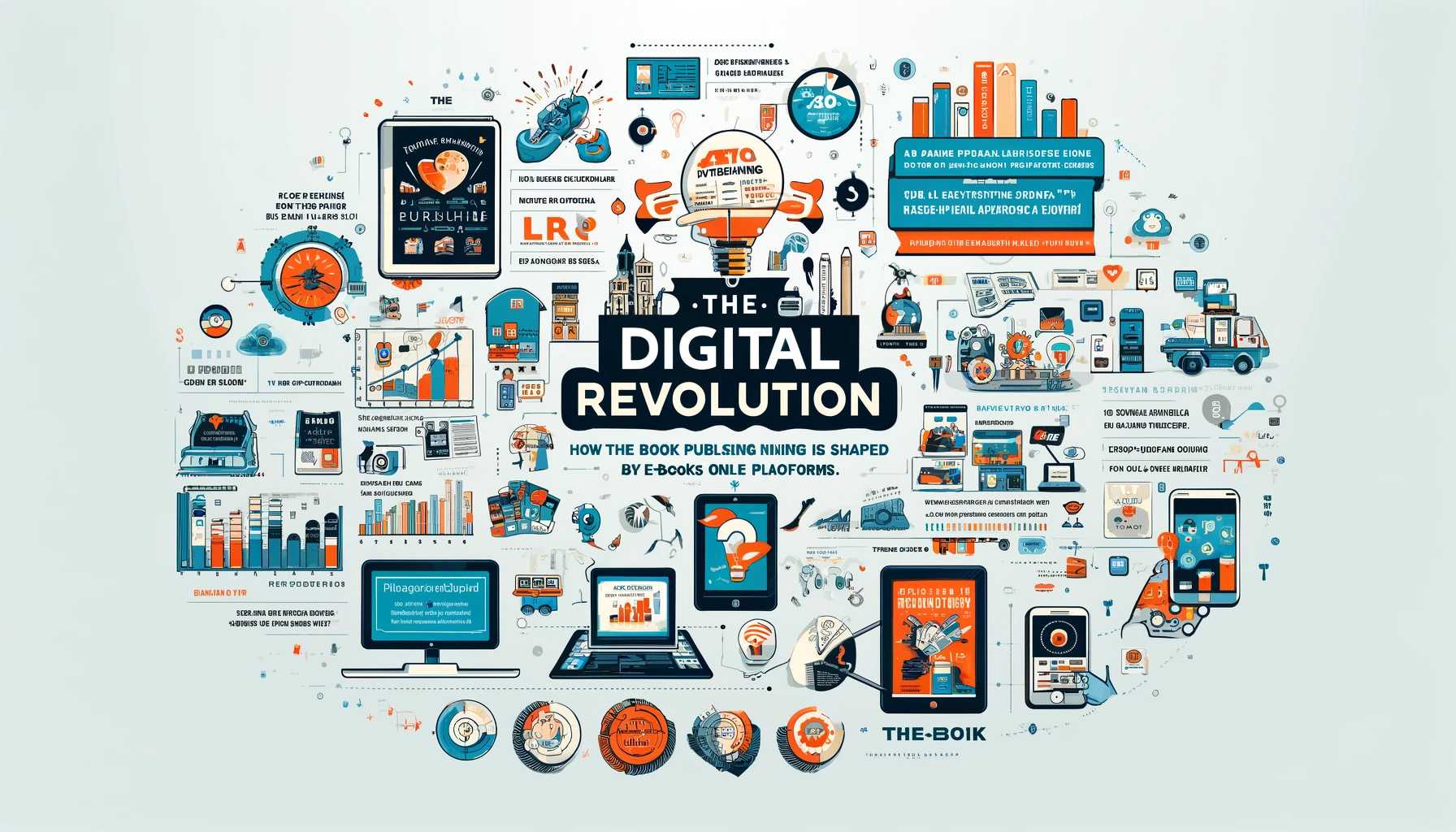THE DIGITAL REVOLUTION: HOW THE BOOK PUBLISHING INDUSTRY IS BEING SHAPED BY E-BOOKS AND ONLINE PLATFORMS
The rise of digital publishing is causing a major upheaval in the book publishing sector. The creation, distribution, and consumption of books have been transformed by e-books, audiobooks, and online platforms. This essay will examine how digital publishing has affected the conventional book publishing market and go over the potential and difficulties it poses for business owners in that field.
The Electronic Book Revolution
In recent years, e-books have grown in popularity and now make up a sizable amount of book sales globally. E-book sales in the US alone increased from $2.2 billion in 2019 to $2.7 billion in 2020, according to Statistic. Not just the US is seeing this trend; countries like the UK, Germany, and Japan have also seen significant growth in e-book sales.
The accessibility of e-books is one of its main benefits. E-books are available for rapid download and purchase, negating the need for readers to go to a bookstore or wait for a physical copy to arrive. The appeal of e-books has been aided by their convenience, particularly for time-pressed readers who like having publications available right away.
What Affects Conventional Publishers
Traditional publishers have been severely impacted by the emergence of e-books. While some publishers have successfully incorporated e-books into their business models and welcomed digital publishing, others have found it difficult to adjust. The Association of American Publishers (AAP) reports that, in 2020, e-book sales represented 23% of all book sales, an increase from 18% in 2019. This change has compelled established publishers to reconsider their approaches and make investments, more heavily in digital publishing.
The pricing of e-books poses a challenge to traditional publishers because they are frequently less expensive than print versions, which can affect publishers' revenue streams. Moreover, the emergence of self-publishing platforms has made it simpler for authors to work directly with publishers, further upending the industry.
The Role of Online Platforms
Online platforms, such as Smash words and Amazon Kindle Direct Publishing (KDP), have enabled authors to self-publish their works and reach a worldwide readership, democratizing the publishing process and granting them greater control over their creations and higher royalties.
The emergence of digital publishing offers opportunities and obstacles for entrepreneurs wishing to get into the book publishing business. Despite the intense competition in the business, there are fresh opportunities for innovation and expansion thanks to the digital landscape. Enterprising people can take advantage of the expanding market for e-books and audiobooks by adopting digital publishing strategies and utilizing internet channels to establish a distinct market position in this ever-changing sector.
In summary, the digital revolution has completely changed the book publishing business, opening up new doors for business owners and posing a challenge to established publishers who are trying to keep up with the times. The creation, distribution, and consumption of books have changed as a result of e-books, audiobooks, and online platforms. This has given publishers and authors new options. As the sector develops further, entrepreneurs will play a key role in shaping its future, driving innovation and pushing the boundaries of what is possible in the world of books.







